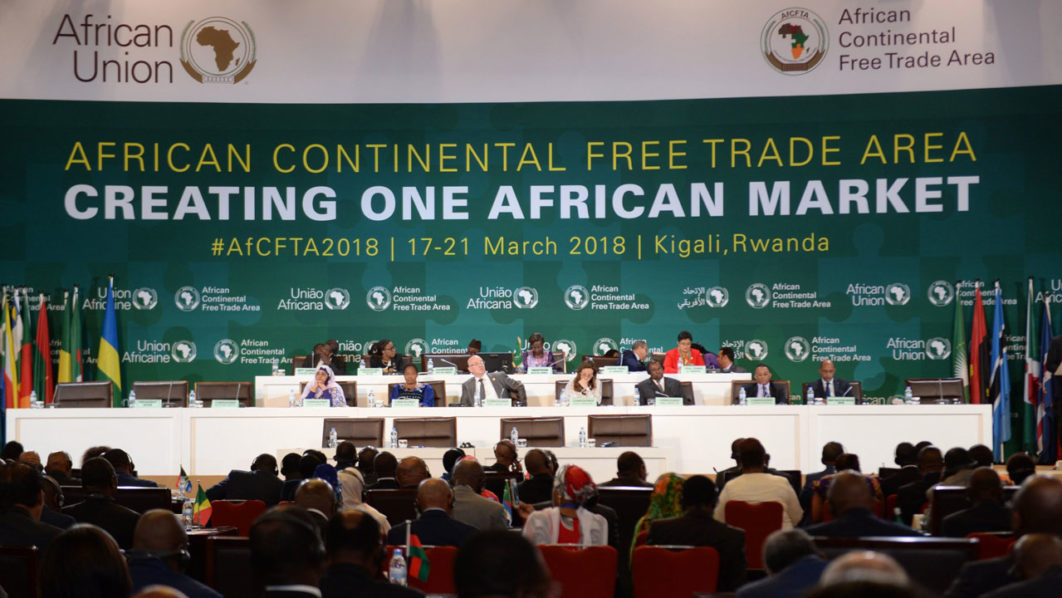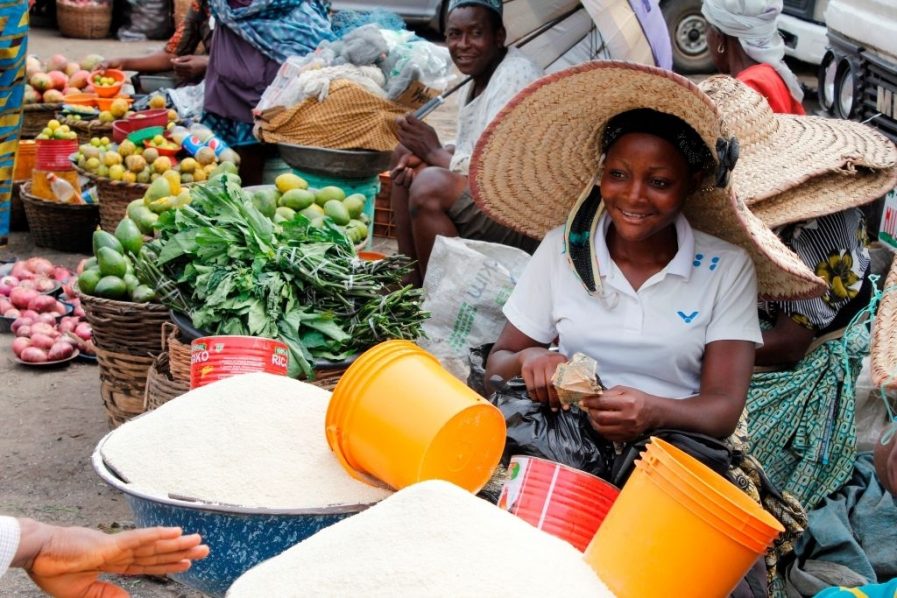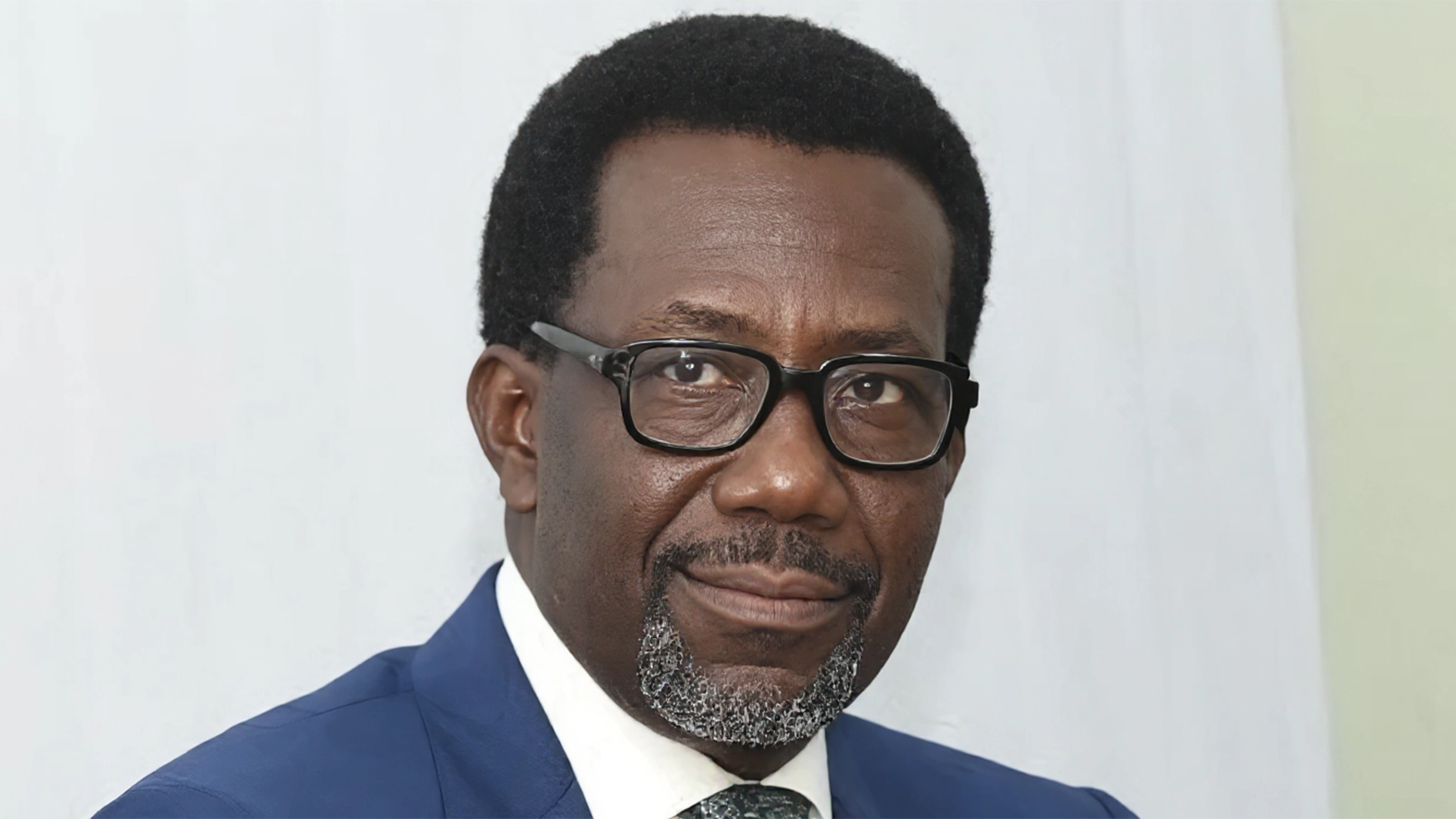
• Africa’s economy could gain $20 billion from NTBs removal
Africa is on the verge of becoming the world’s largest free trade area with the launch of the African Continental Free Trade Area (AfCFTA). If not addressed, non-tariff barriers (NTBs) could slow down this effort.
Although the negative impact of NTBs on intra-regional trade had been recognised, so far there has been limited success in addressing them.
The African Union’s Commissioner for Trade and Industry, Ambassador Albert Muchanga, said the success of the AfCFTA depends in part on how well governments could track and remove non-tariff barriers.
According to him, #TradeEasier, a new campaign to spotlight and remove NTBs in intra-continental trade would promote the uptake and use of the African Union’s trade barriers, a non-tariff barriers reporting mechanism tool to boost trade in the continent.
He said the tool, developed by the African Union in partnership with the United Nations Conference on Trade and Development (UNCTAD), supports efforts to make continental trade easier and less-costly by helping African businesses report such barriers and supports their elimination with the help of governments.
He maintained that NTBs slow down the movement of goods and costs importers and exporters billions of dollars annually, and also stand in the way of the success of AfCFTA.
“If we want the AfCFTA to thrive, we have to ensure operational barriers are dropped, and businesses and traders, especially small ones don’t suffer from undue limitations placed on them as they try to do the basic thing that makes economies work,” he said.
Every day, many African traders and businesses face barriers to trade. From quotas to excessive import documents or unjustified packaging requirements, these barriers are a big hindrance to trade between African countries and make it complicated and expensive to move goods across the continent.
Regulatory and procedural barriers include customs operations and border documentation requirements, rules of origin documentation and pre-shipment inspections. Other trade barriers come in the form of transport regulations, sanitary and phytosanitary measures (SPS), and technical barriers to trade (TBTs).
The application of trade-related regulations to ensure consumer health, protect the environment and safeguard national security is legitimate, but disproportionate restrictions or cumbersome enforcement of trade regulations could stifle trade and amount to NTBs and should therefore be addressed as its use for protectionism goes against the principles of African integration.
In his remarks, African Union’s Dr Oswald Chinyamakobvu, said the micro, small and medium-sized enterprises (MSMEs), informal traders, youth, and women business operators play a crucial role in African trade but are disproportionately impacted by NTBs, due to their limited resources and access to information.
“If MSMEs can more easily report barriers to trade to national and continental authorities and get them resolved, we are already closer to unlocking Africa’s real trade potential and that of the AfCFTA,” he said.
He maintained that to raise awareness on the reporting mechanism among African MSMEs, and encourage the MSMEs to use the platform, the #TradeEasier webinar series was organized, noting that it would also bring African businesses together to share their real-life experiences and accounts on NTBs to trade.
Meanwhile, a report by UNCTAD said if the trade barriers are removed, the African economy could gain $20 billion, much more than the $3.6 billion it could recover by eliminating tariffs.
Also, the United Nations Economic Commission for Africa (UNECA), estimated that AfCFTA has the potential to boost intra-African trade by 52.3 per cent by eliminating import duties, and could double trade if NTBs are also reduced.
The tradebarriers.africa platform focuses on identifying NTBs and eliminating them, and helps government officials in each country, and dedicated NTB coordination unit at the AfCFTA Secretariat to monitor trade related complaints that are reported.
The NTB Coordination unit is responsible for verification of complaints. Once complaints are verified, officials in the countries concerned are tasked with addressing the issue within set timelines prescribed by the AfCFTA agreement.
The tradebarriers.africa online tool also makes it possible for African businesses to play an active role in removing obstacles to continental trade by reporting NTBs online and having them resolved through the mechanism outlined in Annex 5 (NTBs) of the AfCFTA Agreement’s Protocol on Trade in Goods.
Over 600 reported barriers have been resolved through existing portals at the Regional Economic Community (REC) level. The AfCFTA NTB online tool builds on these successful regional portals, helping the entire continent boost efforts to break down NTBs.






